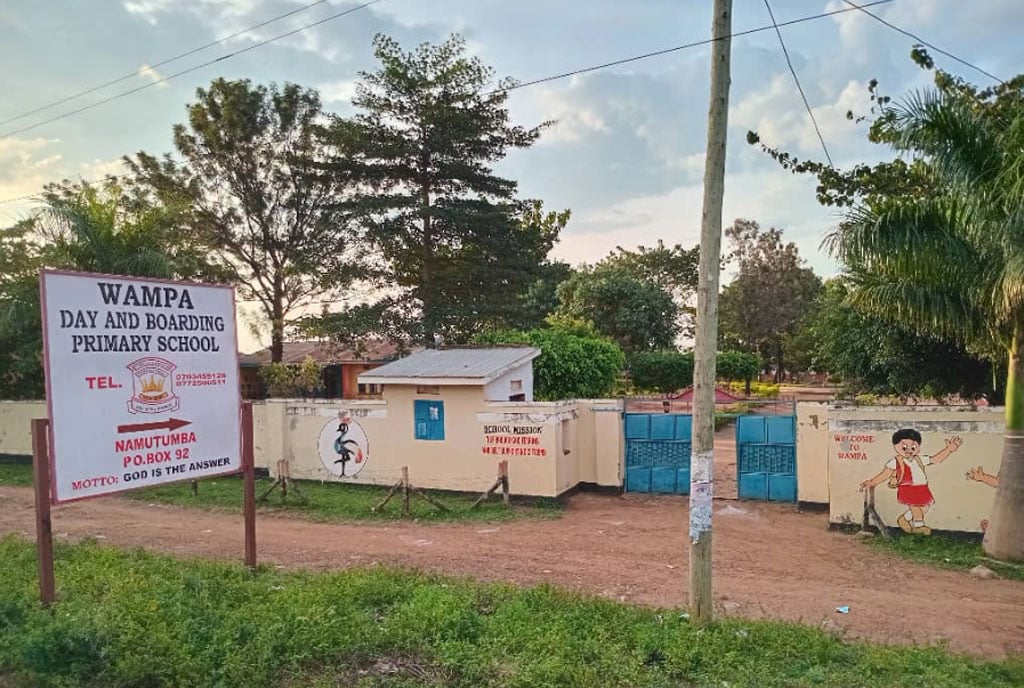Prime
Teso Safe Motherhood Centre spreads smiles to needy mothers

Happy. Ms Hellen Asago (left), a resident of Dokolo Village, Gweri Sub-county in Soroti District, and a health worker, cuddle her child after immunisation at Teso Safe Motherhood Health Centre. PHOTO BY SIMON PETER EMWAMU.
What you need to know:
- The initiative. Teso Safe Motherhood is an NGO running a health centre and providing free services to mothers.
Soroti. Poor and needy expectant mothers in Teso Sub-region have reason to smile after health rights activists undertook to pay hospital bills for their antenatal care services.
Some mothers who talked to Daily Monitor recently shared how health rights activists under their auspice, Teso Safe Motherhood, have facilitated their delivery of healthy babies by taking care of their antenatal needs and clearing their hospital bills after delivery.
One of the beneficiaries, Ms Hellen Asago, 26, a resident of Dokolo Village, Gweri Sub-county in Soroti District, told Daily Monitor that when she conceived her third born, she could not afford to pay for antenatal care services.
Aware of her plight, one of her sisters told her about Teso Safe Motherhood Health Centre, is a local non-profit non-governmental organisation (NGO) run on charity funds from overseas.
It was established in 2006 as an interim measure to provide maternal/new-born and reproductive healthcare to the very needy that had been displaced by the internal strife in the Teso Sub-region. It runs a health centre with furnished maternity wards in Soroti Town.
The facility, in its first year in 2006, facilitated more than 2,160 deliveries.
Although she delivered through caesarean, Asago is grateful that she received all the maternity services free of charge.
“I am very grateful for Teso Safe Motherhood Health Centre because I never paid any coin to deliver my baby,” she said on Sunday.
Dr Martin Ouna, a gynaecologist at Moroto Regional Referral Hospital, and the supervising consultant at Teso Safe Motherhood Health Centre, said all women need access to antenatal care during pregnancy, skilled care during childbirth, and care and support after childbirth. He said on average, (since 2006), they deliver between 100-180 mothers per month.
Mr Ouna said services at Teso Safe Motherhood Centre are free of charge, and each boda boda rider who helps transport a mother to the facility during labour pains, is given some transport refund for saving a life.
In Uganda, maternal mortality ratio is 343 per 100,000 live births, with the infant mortality rate estimated at 45 per 1,000 live births.
Most deaths occur due to unintended, too early, too frequent and too many and too late pregnancies.
Dr Ouna said those who need emergency care are taken to Soroti Regional Referral Hospital, and the facility provides all the requirements.
The Soroti District Woman MP, Ms Angelline Osegge, said it has always been the wish of Teso Safe Motherhood Centre that women needn’t die or lose their babies during birth.
“At Teso Safe Motherhood, we are saving lives for free,” Diana Asio Ikeba, a midwife at the facility, said.
However, the only challenge faced by mothers at the facility is that there is no free food.
The district health officer, Dr Charles Okadhi, says Teso Safe Motherhood stands out in the district because of their heart for humanity.
About the facility
Ranking. According to the Soroti District ranking of the best health facilities as far as maternal and infant care and HIV/Aids care is concerned, Teso Safe Motherhood has ranked number one since 2017.
Background. The facility was formed by a group of nurses from Canada who realised the need, but later got in touch with US-based International Midwife Assistance, which recognised the need at that time when maternal and infant mortality rate was high in the region.



